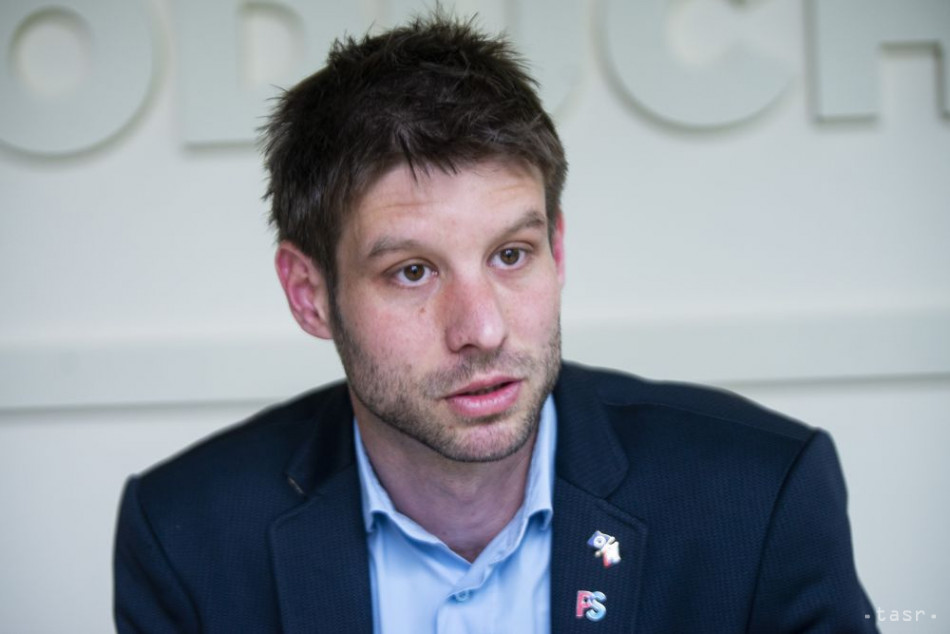Bratislava – Opposition parties PS, KDH, and SaS are filing a constitutional complaint regarding the law on Slovak Television and Radio (STVR). They announced this at a press conference on Monday. They are also calling for the suspension of the legislative changes, reports TASR.
“We are convinced that this law is in conflict with the Constitution of the Slovak Republic, with several articles of our constitution, and moreover, it is in conflict with European Union legislation,” said PS chairman Michal Šimečka. He sees the legislative change as an attempt to politically control it, appoint their own nominees to the institution’s leadership, rather than an ambition to improve the situation in RTVS.
Member of the National Council (NR) Zora Jaurová (PS) clarified that the complaint challenges both the content of the legislation and the process of its adoption, including the exclusion of the public from the preparation of the law and the shortening of parliament discussion. She noted that the institution lacked any leadership or statutory representative for several hours due to the process. She sees the conflict with the Constitution of the Slovak Republic in the guarantees of freedom of expression and the right to information, as well as with the provision on the prohibition of censorship.
The three opposition parties are also challenging the law’s inconsistency with the European Media Freedom Act before the Constitutional Court, asking it to refer the matter to the Court of Justice of the European Union.
“A turning point has come for freedom of speech,” said Marián Čaučík (KDH) regarding the effectiveness of the amendment. He also justified the addition of the signatures of movement MPs to the motion to the Constitutional Court. Jozef Hajko (KDH) agrees. Besides the purposeful nature of the changes, he criticized the process of their adoption. “They did such a sloppy job that they effectively published the law on the day it took effect, five minutes after midnight,” he noted. He therefore appealed to the Constitutional Court to suspend the law’s effectiveness.
René Parák from SaS called the motion a logical culmination of steps promised to voters with the aim of protecting the media environment. According to him, the Media Freedom Act is violated, for instance, because the law on STVR does not allow elected members of the RTVS council to complete the mandate to which they were elected. He also sees a problem in the fact that STVR is not sufficiently funded, which according to him threatens the apolitical nature and impartiality of the news.
The parties critically perceive the signing of the legislation by the President of the Slovak Republic Peter Pellegrini.
The law on STVR took effect on Monday, July 1. Slovak Radio and Television (RTVS) is thus changing to STVR. The director will now be elected by a nine-member council with four nominees from the Ministry of Culture. With the law’s effectiveness, the term of the current head of RTVS, Ľuboš Machaja, and the mandate of the current members of the RTVS Council will also end. (July 1)
“We are convinced that this law is in conflict with the Constitution of the Slovak Republic, with several articles of our constitution, and moreover, it is in conflict with European Union legislation.”
Michal Šimečka
 go to the original language article
go to the original language article
